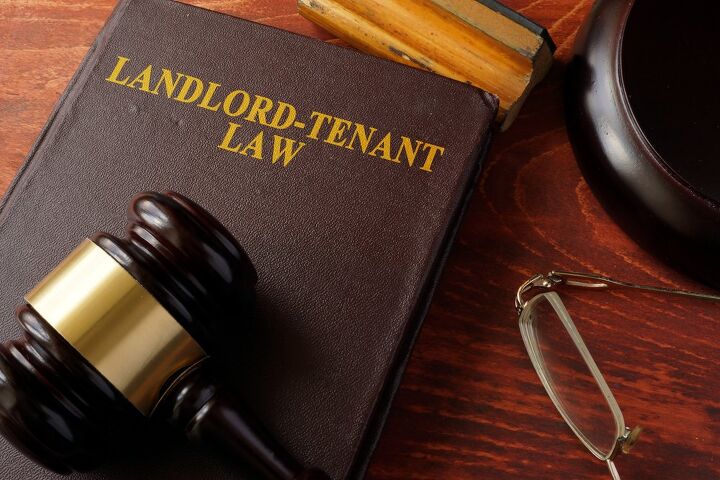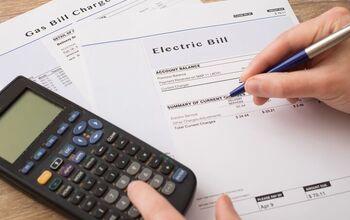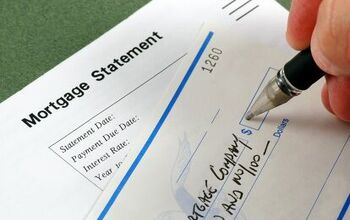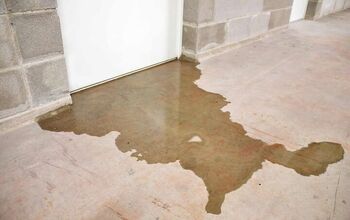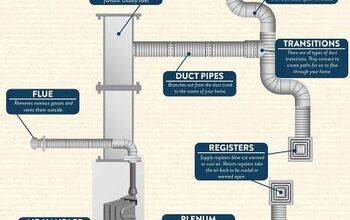Is Your Landlord Not Fixing Things? (Here's What You Can Do)

Problems with your apartment can be a headache when you are renting. There are often several steps and phone calls you need to make to get simple repairs taken care of. You may even find yourself in a situation where your landlord does not respond or refuses to fix things in your rental unit. It is important to know your rights as a tenant so you can address your concerns effectively.
Contact your landlord through an official written document when he is not making necessary repairs. Be sure you document the problems thoroughly with photos and dates. Depending on where you live you may be able to make necessary repairs yourself and deduct the cost from your rent. If repairs are not made you can try withholding rent, and even sue your landlord as a last resort.
Before you make rash decisions you should make sure you go about communicating with your landlord in the right way. Often professional and documented communication is a great way to let your landlord know you mean business.
Do You Need to Hire Movers?
Get free, zero-commitment quotes from pro contractors near you.

How Should I Ask My Landlord To Fix Things?
- Make Sure the repair is the landlord’s responsibility. Before you ask your landlord to fix something in your apartment you should first make sure it falls within his responsibility. For example, some appliances like refrigerators, are found within a rental unit but a working refrigerator may not be part of a lease.
- Document The Problem Thoroughly. When you first notice a problem in your rental unit you should begin documenting it immediately. Photos with timestamps and e-mail communication in a timely manner are critical when you address problems with your landlord.
- Ask your landlord in writing. Once you have confirmed the problem is the landlord’s responsibility and you documented the problem you should write to your landlord directly. Be professional without being accusatory. It is important to keep emotions out of professional communication.
- Send the landlord a letter with a return request. When you send your correspondence to your landlord, be sure there is a paper trail. You can send a letter certified mail or even request a received request in an email correspondence. This will help you confirm the landlord was aware of your concerns if the matter goes to court.
- Await response. If you have a critical repair you should wait up to a week for a landlord’s response. Any non-critical repairs you should allow up to one month for a sufficient response and solution from your landlord. If you do not receive a response within this timeframe you can move on to the next steps.
Talk With The Super If You Have One
If you live in an apartment building there is most likely a superintendent or a building manager. If you have an issue with your apartment they can potentially be a great resource. They are most likely a wealth of knowledge when it comes to the building and its issues.
Even if a super or building manager cannot fix your problem, he or she may have a good contact for you. This can help you a great deal if you need to get a repair estimate to your landlord.
Repair And Deduct
One option you can opt for in many states is the “Return And Deduct” tactic. The return and deduct method is when a tenant makes repairs themselves and then deducts these repairs from their rent. Many states permit this, but there are several stipulations. There are several things to consider before you take this approach.
- Tell Your Landlord First. Before you perform costly repairs on your home you should contact your landlord first. It is important to give your landlord the opportunity to repair the problem first. They may also have preferred professionals that they work with, I.e. a specific plumber or electrician.
- Do Research and Get Estimates. Research the problem so you are calling the right professional in. It is also best practice to get two or three estimates if possible. This ensures that you are paying the standard rate for the repair and not a premium price.
- Make Sure the Repair Is Necessary. Just because you want something fixed or installed does not mean your landlord has to pay for it. A new ceiling fan or new bathroom mirrors might be something you want, but your landlord may not be obligated to provide them.
- Document Work and Save Receipts. Whenever you have a repair done on your unit be sure to save all documentation and all receipts. Make copies of all this and send them with your reduced rent check to avoid dispute.
Withhold Rent
Withholding rent is often the quickest way to get your landlord’s attention. You should only withhold rent when you have exhausted all other means to fix the problems in your home. When you withhold rent you are essentially inviting the first steps of the eviction process.
Several states allow tenants to withhold rent when the landlord does not make repairs. Even if a state allows you to withhold rent, the landlord still has the right to file a petition for eviction when you don’t pay rent. Be sure you have all your proper communication documents ready to hand over.
At this point, you should ask your landlord again in writing to make the necessary repairs. Be sure to refer to the previous attempts you made to solve the issue. Note the dates of your initial correspondence in the new letter as well.
Sue Your Landlord
As a last resort, you can sue your landlord. There are several reasons you would sue your landlord over un-fixed problems. Be sure your situation qualifies before you pull the trigger and hire legal counsel. Suing your landlord can be messy and potentially very costly.
- Compensation For Unsafe Living Conditions. If you suffer health problems or personal injury directly related to neglected repairs you may be entitled to compensation from your landlord. This process may take time, so careful documentation of living conditions, correspondence, and medical bills should all be kept safe.
- Reimbursement For Out-Of-Pocket Repairs. You may have made necessary out-of-pocket repairs to your unit without being reimbursed by your landlord. If you requested reimbursement through an official letter and not received compensation or response you may have a case.
- Paying Rent When a Unit Is Uninhabitable. If you have asked your landlord to make necessary emergency repairs and the landlord does not you may find yourself living in an uninhabitable dwelling. There is a specific list of criteria that is required to label a dwelling uninhabitable. If your living situation falls within that definition and your landlord has not made improvements then you may be entitled to compensation.
Report Landlord To Health Department
You can also report your landlord to the health department. When you call the health department about the unhealthy living conditions in your unit they may send an inspector. The inspector will view the unit and determine if the landlord is in violation of health codes.
If the landlord is found at fault he will receive a fine or a warning. Along with whatever citation the landlord receives he must need to make the necessary repairs in a set amount of time or face additional penalties.
Move Out
If you have exhausted all your options and in turn find yourself exhausted you may think about moving out. A combative relationship with a landlord can lead to increased anxiety and a decreased sense of personal security within your own home.
If you and your landlord cannot see eye to eye, look into possibly terminating the lease early. Be sure to include all of your support documentation with this request. If you and your landlord have been at odds then your landlord may even grant you an early departure without penalty. It does not hurt to ask and then move on to a better living situation.
Do You Need to Hire Movers?
Get free, zero-commitment quotes from pro contractors near you.

Related Questions
Is My Landlord Obligated To Respond To My Requests?
Your landlord is not obligated to respond to your requests. However, if your landlord does not respond to your requests to make repairs you are within your right to take further action. This is particularly true if the requests are related to your health or safety within the dwelling.It is crucial you have written requests. Document these requests to the best of your ability. The more evidence you have to bring to the proper authorities the stronger your case will be.
How Long Do I Have To Move Out When I Am Evicted?
The eviction process can vary in length depending on where you live. The length of time can be as short as two weeks and as long as several months. An eviction order is the official court document that the landlord must obtain from the court before forcing you to move out. This process can be lengthy.Once The landlord has obtained the eviction order, however, you typically have under one week to move out.
Do I Have To Paint My Walls When I Move Out?
If you painted the walls in your apartment you may need to paint them back to their original color when you move out. Before you paint your apartment be sure to review your lease. Some leases prohibit painting of any kind.
Other leases may specify the colors or types of paints you can use in your dwelling. Even if the landlord does not specify that you need to paint walls back before you move out it is best practice to do so. When you leave a unit it is always best to leave it in the condition you found it, with the exception of standard wear and tear.

Tom Gaffey is an expert writer who currently resides in Washington D.C. Tom has a passion for real estate and home improvement writing, as well as travel and lifestyle writing. He lived the last twelve years in Hawaii where he worked closely with luxury resorts and event planners, mastering his knowledge of aesthetics and luxury products. This is where he found his passion for home improvement and a keen interest in DIY projects. Currently, Tom resides in Washington D.C, and also working on his debut fiction novel.
More by Tom Gaffey



